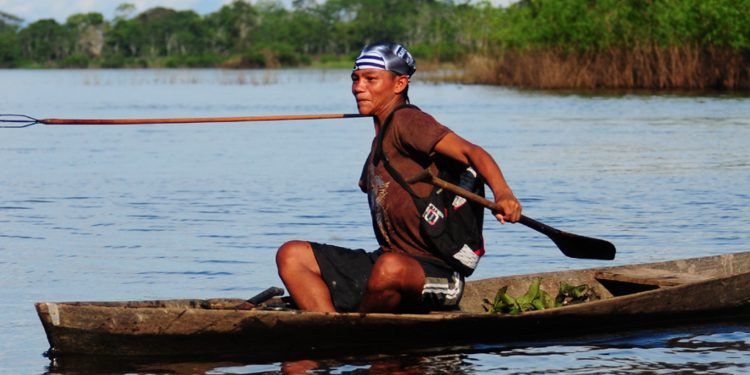Indigenous Peoples’ food systems are at risk of disappearing and governments must help protect them, according to a new study.
“Despite surviving for centuries, Indigenous Peoples’ agri-food systems are likely to disappear in the next years due to a number of drivers threatening their future,” said Juan Lucas Restrepo, Director-General of the Alliance of Bioversity-International and CIAT.
“Researchers must listen and learn from them to support efforts to maintain ancestral knowledge.”
The Food and Agriculture Organization of the United Nations (FAO), and the Alliance of Bioversity International and The International Center for Tropical Agriculture (CIAT) have produced the report on eight Indigenous food systems.
It’s called Indigenous Peoples’ Food System, Insights of sustainability and resilience from the front line of climate change.
The report analyses the food systems of the Baka people in Cameroon, the Inari Sámi people in Finland, the Khasi, Bhotia and Anwal peoples in India, Melanesian people in the Solomon Islands, the Kel Tamasheq people in Mali, the Tikuna, Cocama and Yagua peoples in Colombia, and the Maya Ch’orti’ in Guatemala.
“Being adaptive is the main resilient element of these food systems,” said Anne Nuorgam, Chair of the UN Permanent Forum on Indigenous Issues.
“More effective interactions between indigenous and scientific knowledge will transform agri-food”
“Deep observation of the environment accumulated generation after generation and sharp understanding of the relationships between the elements in the ecosystem guarantee the protection of biodiversity.”
The report demonstrates the potential of Indigenous Peoples’ food systems to inform ongoing global debates about sustainability, climate resilience, territorial management, food systems and intercultural education, amongst others.
It also confirms the need for more research at all levels on Indigenous Peoples’ food systems.
The eight cases analysed found:
-
- Indigenous Peoples preserve and enrich their ecosystems through their food systems;
- Indigenous Peoples’food systems are resilient and adaptive;
- Indigenous Peoples’food systems can broaden the existing food base with nutritious foods;
- Indigenous Peoples’food systems are interdependent with language, traditional knowledge, governance and cultural heritage.
Nearly 500 million people in more than 90 countries identify as Indigenous Peoples. They generate hundreds of food items without depleting natural resources.
In the Solomon Islands, agroforestry, wild food gathering and fishing are combined to generate 70 per cent of their dietary needs. In Finland’s Arctic region, through fishing, hunting and herding, the Inari Sámi people generate 75 per cent of the protein they consume.
Today these systems are at high risk from climate change and the expansion of industrial and commercial activities.
FAO Chief Economist, Máximo Torero, said, “We need more effective and creative interactions between indigenous knowledge and scientific knowledge systems. This is the only way we will achieve the agri-food system transformation that the world needs.”
Further reading:
- Displacement of Indigenous Peoples by food system must end
- Indigenous Peoples and their food should guide Cop26-led reforestation
- Ecuador’s Indigenous Peoples: we are protecting our territories























